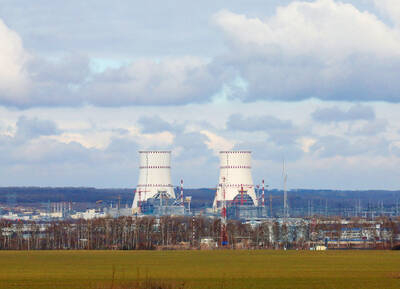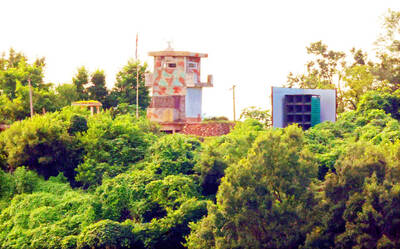For a century and more, Japanese and their descendants have migrated back and forth across the Pacific to and from South America in search of better lives for themselves and their children.
Brazil’s economy, the growth of which in recent years has contrasted starkly with Japan’s — has driven the latest wave of such journeys, with a third of Japan’s Brazilian community leaving since the 2008 global economic crisis hit.
For those left behind, the change brings very particular challenges.
In April 2008, about 13,000 Brazilian workers and their families lived in Toyohashi, an industrial city in central Japan, 250km southwest of Tokyo. Only about 8,000 remain.
Many of the migrants look Japanese despite their Portuguese names and Brazilian passports, which should be a key help for integration, but at the same time, many still know little of Japanese language and culture.
With their numbers now in rapid decline, the community has lost its self-sustaining critical mass, and those who choose to stay on are having to make extra efforts to bridge language and cultural divides. Andrea Pereira moved to Japan with her husband more than 10 years ago, and their six-year-old daughter Ellen was born into a family that spoke Portuguese at home, meaning she has never had the chance to properly learn Japanese.
The Pereiras’ solution was to send her to a pre-school run by a local Brazilian association in Toyohashi, where she can learn about her host culture, and how to talk to those around her.
“We hope that we can take away as much anxiety as possible,” pre-school teacher Tsuyuko Yokota said, adding that the school would help the children make a “smooth and fun start” at elementary school.
“Although there are Brazilian schools here that teach in our mother tongue of Portuguese, I’d prefer a Japanese school,” said Pereira, 30, a mother of three.
“We prefer them to be learning what it’s like to be Japanese,” she said.
The families’ divided identities are a legacy of a complicated history.
Thousands of Japanese went to South America at the start of the 20th century, accepting low wages and poor working conditions on coffee plantations after the abolition of slavery.
In the past 100 years, the number of Brazilians of Japanese descent had grown to about 1.4 million, according to official statistics.
Another example of such populations lies in Peru, where the ethnic Japanese politician Alberto Fujimori was president for 10 years from 1990 until he fled — to Japan — during a corruption scandal.
Unlike many rich nations, ethnically homogenous Japan does not have a large immigrant population, and has shown itself to be unusually allergic to the idea of large influxes of foreigners.
However, when its economy boomed in the 1970s and 1980s, policymakers in Tokyo found the country was short of labor and turned to the emigrants’ descendants.
When Tokyo moved to allow people with Japanese heritage to come to work in Japan on renewable three-year visas, tens of thousands crossed the Pacific to return to their ancestral homeland and seek their fortunes.
However, setting up home in Japan left some Brazilians struggling, with seemingly unbridgeable language and culture gaps meaning many simply retreated into their immigrant communities, creating pockets of Portuguese-speakers who had good jobs, but little common ground with their wider surroundings.
Since the global economic crisis hit four years ago, many short-term worker contracts have ended and the movement has been the other way, despite Brazil’s red hot economy slowing recently.
Japan’s economy shrank last year, hit by the huge earthquake and tsunami of March last year that left more than 19,000 dead and wreaked havoc with industrial production, and other factors stemming from global economic woes.
Kumiko Sugimoto, 51, hopes that with Japan’s rapidly graying society, finding work as a caregiver for the elderly will bring her the security she needs after losing her job at a bakery in Toyohashi.
She is studying for a nursing qualification at a vocational training school that also teaches Japanese language.
“Before, I used to think that we’d go back to Brazil, but my daughters grew up here, and now we can’t go back,” Sugimoto said. “So now I need as many qualifications I can get. I don’t think we’ll ever return to Brazil.”

Philippine President Ferdinand Marcos Jr has fired his national police chief, who gained attention for leading the separate arrests of former Philippine president Rodrigo Duterte on orders of the International Criminal Court and televangelist Apollo Carreon Quiboloy, who is on the FBI’s most-wanted list for alleged child sex trafficking. Philippine Executive Secretary Lucas Bersamin did not cite a reason for the removal of General Nicolas Torre as head of the 232,000-member national police force, a position he was appointed to by Marcos in May and which he would have held until 2027. He was replaced by another senior police general, Jose

POWER CONFLICT: The US president threatened to deploy National Guards in Baltimore. US media reports said he is also planning to station troops in Chicago US President Donald Trump on Sunday threatened to deploy National Guard troops to yet another Democratic stronghold, the Maryland city of Baltimore, as he seeks to expand his crackdown on crime and immigration. The Republican’s latest online rant about an “out of control, crime-ridden” city comes as Democratic state leaders — including Maryland Governor Wes Moore — line up to berate Trump on a high-profile political stage. Trump this month deployed the National Guard to the streets of Washington, in a widely criticized show of force the president said amounts to a federal takeover of US capital policing. The Guard began carrying

Ukrainian drone attacks overnight on several Russian power and energy facilities forced capacity reduction at the Kursk Nuclear Power Plant and set a fuel export terminal in Ust-Luga on fire, Russian officials said yesterday. A drone attack on the Kursk nuclear plant, not far from the border with Ukraine, damaged an auxiliary transformer and led to 50 percent reduction in the operating capacity at unit three of the plant, the plant’s press service said. There were no injuries and a fire sparked by the attack was promptly extinguished, the plant said. Radiation levels at the site and in the surrounding

‘DELIBERATE PROVOCATION’: Pyongyang said that Seoul had used a machine gun to fire at North Korean troops who were working to permanently seal the southern border South Korea fired warning shots at North Korean soldiers that briefly crossed the heavily fortified border earlier this week, Seoul said yesterday after Pyongyang accused it of risking “uncontrollable” tensions. South Korean President Lee Jae-myung has sought warmer ties with the nuclear-armed North and vowed to build “military trust,” but Pyongyang has said it has no interest in improving relations with Seoul. Seoul’s military said several North Korean soldiers crossed the border on Tuesday while working in the heavily mined demilitarized zone (DMZ) separating the two Koreas. The incursion prompted “our military to fire warning shots,” South Korea’s Joint Chiefs of Staff